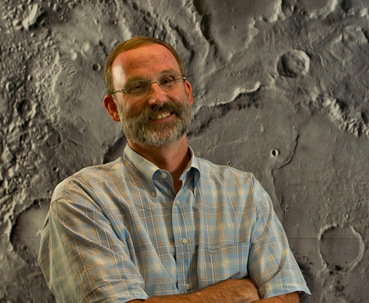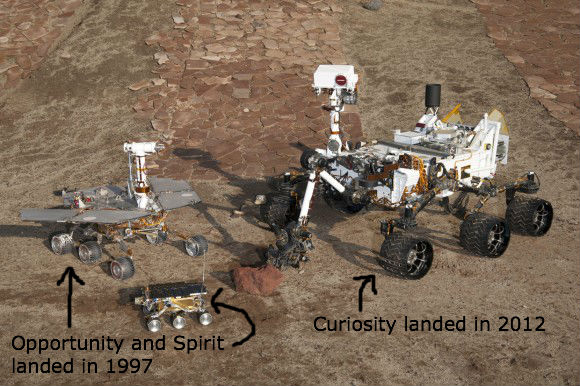It has begun! Rehearsals have started, the script has been written (mostly) and our new play “Red Planet Respite” is taking shape.
One of the many reasons I love working with Katie is that she is uses Viewpoints in her new play development. Viewpoints is a movement/acting/improvisation technique developed by Anne Bogart and Siti Company. We have been using Viewpoints to explore our characters and their relationships in this early stage of play development.

Pictured above are some of our cast members in the middle of a viewpoints composition. From left to right we have Rivka, Kevin, Shannon and Jeremiah. We love our talented and energetic cast.
With viewpoints, you start to create a physical, gestural and emotional vocabulary for your character before the text is even introduced. It’s a lot of fun. So much fun that Katie can’t help but jump in from time to time.

The first week of rehearsals concluded last night after a tour of the Mars Space Flight Facility on the ASU campus. We had the amazing honor of a private presentation by the one-and-only Phil Christiansen.

Phil has been a major player in Mars Exploration since the 70’s. His body of work includes designing and building a major instrument in both the Spirit and Opportunity rovers called mini-Tes (Miniature Thermal Emission Spectrometer ). Mini-Tes measures the properties of minerals such as temperature. Using this information scientists are able to analyze each mineral and determine if it could have been made by water.

Have they found water? Yes, but only in the solid form of ice. Dr. Christiansen believes the canals on Mars could have been created by snow-melt, but that Mars has never been warm enough to sustain life. It is indeed a cold planet. On the hottest day of summer, on the equator of Mars, it may reach a temperature as high as 32 degrees Fahrenheit, still freezing. There are a few reasons Mars is so cold. Its further from the sun, has a much thinner atmosphere and has no Magnetic Field.
The reason a magnetic field helps a planet keep warm is because it protects the atmosphere by catching and deflecting solar wind. Scientists believe there was a time when Mars had a much thicker atmosphere. There is evidence of magnetized rocks that imply the planet was once polarized like earth. But somehow Mars lost its magnetic field and the solar wind was able to sweep most of the atmosphere away.

Could Mars have sustained life in it’s early days when it had more of an atmosphere? Maybe. But scientists have yet to find any evidence of biological life, as we know it.
